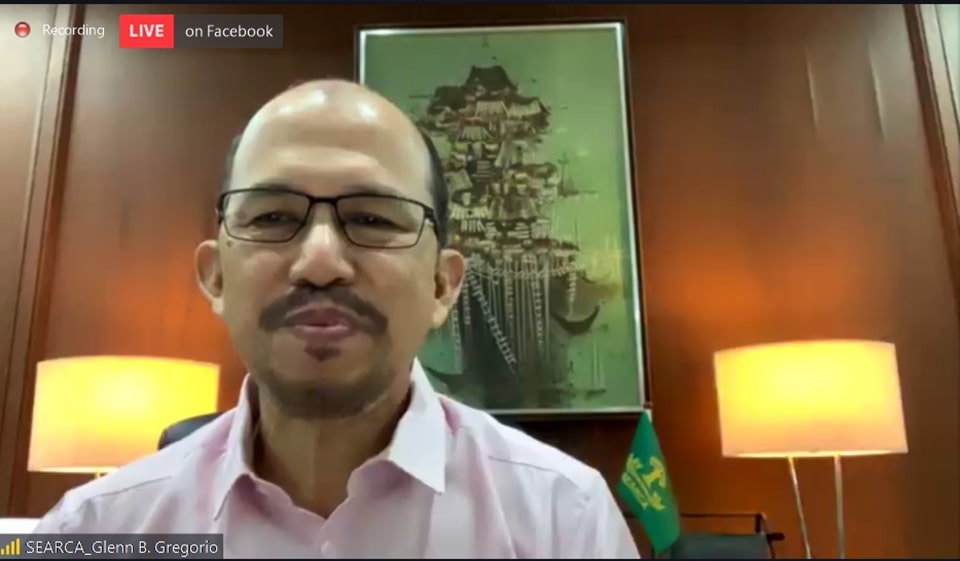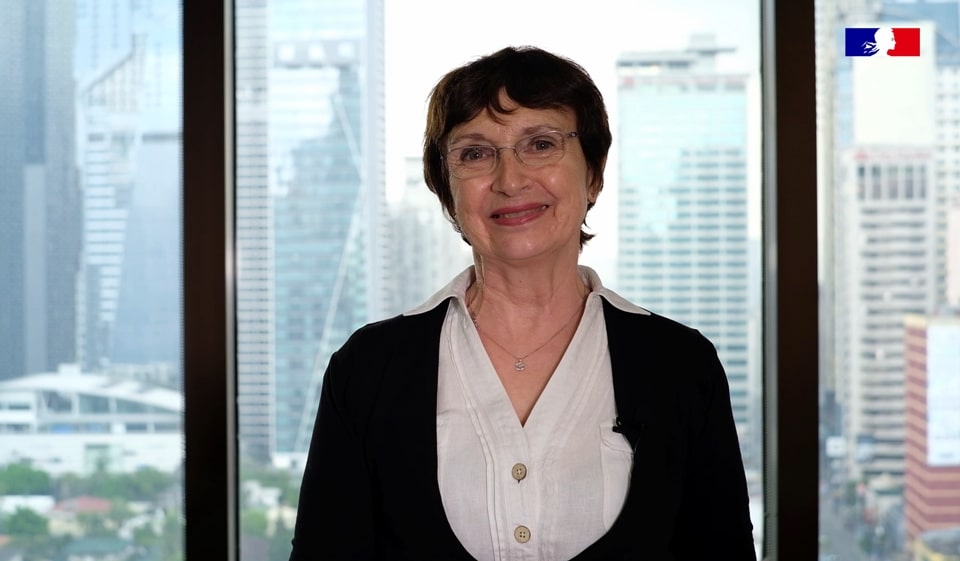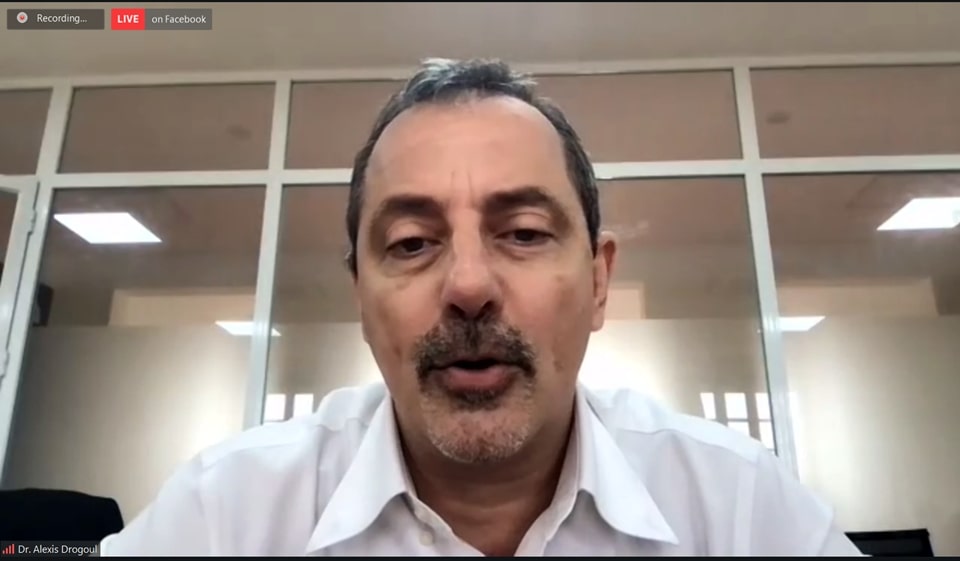Recognizing the important role of higher education institutions (HEIs) in knowledge production and generation of innovative solutions to address the challenges in agriculture and forestry, the Southeast Asian Regional Center for Graduate Study and Research in Agriculture (SEARCA), together with the French National Research Institute for Sustainable Development (IRD) and the French Embassy in Manila, organized a three-part webinar series to kick-off the Online Training Workshop on Modeling for Higher Education Institutions (HEIs) on the Application of Geographic Information Systems (GIS) and Agent-Based Modeling Approach: Agri-Forestry Technology for Ensuring Agricultural Resilience (GAMA-AFTER). Hosted under the SEARCA Online Learning and Virtual Engagement (SOLVE) platform, via Zoom App and streamed live on SEARCA’s official Facebook page, the webinar series was held on 22, 24, and 26 March 2021 with more than 300 online attendees including 18 GAMA AFTER training-workshop participants from the following participating HEIs: Benguet State University (BSU), Bicol University (BU), Cagayan State University (CSU), Central Bicol State University of Agriculture (CBSUA), Dr. Emilio B. Espinosa, Sr. Memorial State College of Agriculture and Technology (DEBESMSCAT), Isabela State University (ISU), and Visayas State University (VSU).
 Dr. Glenn B. Gregorio, SEARCA Director, emphasizes the important role of higher education institutions in making positive change in communities, especially in addressing the problems that beset farmers and farming households.
Dr. Glenn B. Gregorio, SEARCA Director, emphasizes the important role of higher education institutions in making positive change in communities, especially in addressing the problems that beset farmers and farming households.
During the first installment of the webinar held on 22 March 2021, Dr. Glenn B. Gregorio, SEARCA Director, emphasized the need for HEIs to demonstrate their ability to assume social responsibilities and initiate reforms in the way students and educators learn and relearn things, especially amid the shift in the climate and value chain of agricultural food systems brought about by the COVID-19 pandemic. He noted that this is the reason SEARCA gives primary focus on the academe-industry-government interconnectivity under the Center’s 11th five-year plan with an overarching theme of Accelerating Transformation Through Agricultural Innovation (ATTAIN). Dr. Gregorio furthered that the partnership and collaboration between the academic, industry, and government sectors would greatly alleviate the problems experienced by farmers and agriculture-dependent families.
 Her Excellency Michèle Boccoz delivers her message during the opening program of the GAMA-AFTER webinar. She notes that nature-based solutions referring to the sustainable management and use of nature for tackling socioenvironmental challenges could be one of the innovative approaches to tackle both climate change and biodiversity conservation through a common response.
Her Excellency Michèle Boccoz delivers her message during the opening program of the GAMA-AFTER webinar. She notes that nature-based solutions referring to the sustainable management and use of nature for tackling socioenvironmental challenges could be one of the innovative approaches to tackle both climate change and biodiversity conservation through a common response.
In her message, Her Excellency Michèle Boccoz, Ambassador of the French Republic to the Philippines and Non-Resident Ambassador-Designate to Palau, the Federated States of Micronesia, and the Marshall Islands, said that given the increasing frequency and destructiveness of natural disasters in the Philippines, the country must be provided all the tools that will prepare the nation and its citizens for climate change. This requires taking action at every level of society and the state to address the impacts of climate change.
Dr. Pedcris M. Orencio, Program Head of SEARCA’s Research and Thought Leadership Department (RTLD), gave an overview of the GAMA AFTER online training workshop. With the HEIs as intended participants, he highlighted the significant contribution of HEIs in development through the pursuit, dissemination, and application of knowledge as well as in advocating for innovation culture and building an innovative atmosphere to inspire a large number of emerging technologies.
 Dr. Alexis Drogoul presents his introductory lecture on agent-based modeling.
Dr. Alexis Drogoul presents his introductory lecture on agent-based modeling.
The webinar started with a presentation on the basic principles of modeling and agent-based modeling by Dr. Alexis Drogoul, Vietnam-Philippines Country Representative of the IRD. Dr. Drogoul notably said that while “all models are wrong,” in the sense that models necessarily entail assumptions that veer it away from approximating real systems, “some of them are useful.”
Dr. Patrick Taillandier, Research Scientist at the Research Unit for Applied Mathematics and Informatics (MIAT), National Research Institute for Agriculture, Food, and Environment (INRAE)-Occitanie-Toulouse, introduced participants to the GAMA platform. Dr. Taillander said that GAMA provides users with a complete integrated development environment to build spatially explicit, multi-agent simulations. GAMA also features a modern and flexible modeling and simulation interface, various formalisms to define the model dynamic, and easy integration of GIS data, among others.
The second part of the webinar, conducted on 24 March 2021, featured a continuation of the introductory lecture on GAMA by Mr. Arthur Brugière, Data Analysis and Computer Modeling Engineer at IRD Vietnam. Mr. Brugière assisted the participants in downloading, installing, and running GAMA and in exploring the platform’s features through a sample model. Afterwards, Dr. Taillander walked the training participants through the basics of developing a model using GAMA by constructing a model describing the spread of a disease.
The final installment of the webinar, held on 26 March 2021, included a discussion by Mr. Brugière on model exploration. This was followed by a presentation of four projects that employed GAMA. Dr. Taillander discussed the MAELIA project, a multi-agent platform that was used to deal with water scarcity problems in the Adour-Garonne region in France. Mr. Brugière, on the other hand, presented the CityScope Hanoi project, an interactive simulation for water management in the Bac Hung Hai irrigation system in Hanoi, Vietnam. Dr. Drogoul discussed HoanKiemAir project, which is a tangible and interactive simulation designed to assess the impacts of pedestrian areas or low emission zones on the traffic and subsequent traffic-induced air pollution. Lastly, Dr. Nguyen Ngoc Doanh, Associate Professor at the Department of Computer Science and Engineering, Thuyloi University in Vietnam, presented the CoVID19 Modeling Kit (COMOKIT), a computer model that was used in assessing and comparing the impact of public health policies against COVID-19 at the level of communes in a developing country.
 Resource persons, workshop facilitators, and participants of the GAMA-AFTER online training workshop.
Resource persons, workshop facilitators, and participants of the GAMA-AFTER online training workshop.
Subsequent sessions of the GAMA-AFTER online training workshop will be facilitated by a team of modelers from the University of the Philippines Los Baños (UPLB) and will be conducted using the MS Teams virtual learning platform. These will be jointly organized and implemented by SEARCA’s Education and Collective Learning Department-Training for Development Unit (ECLD-T4DU), RTLD, and Management Information Services Unit (MISU). Session 2, scheduled on 8 April 2021, will cover further discussions on agent-based modeling and simulation, GIS applications, forest modeling, economic modeling, model parameters and assumptions used in a sample model (GAMA Forest Model), and description of the experimental forest. The second session will also focus on the preparation of proposals that integrate modeling applications in a project proposal or a curricular proposal. Session 3 of the training workshop to be conducted on 7 May 2021 will involve the presentation of the crafted proposals.